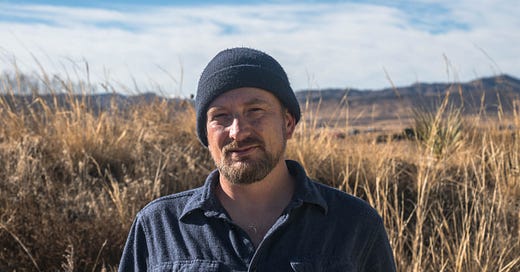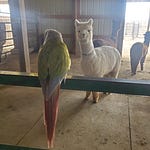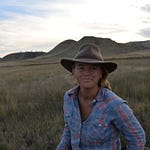In Wolverine Farm’s Matter Journal 13: Edward Abbey, Steven Schwartz speaks to a brief period in which he was Ed Abbey’s student. (For those unfamiliar with Abbey’s legacy, here’s a sketch: He criticized the corporate machinations of made-in-America modernity; he reveled in wild- and wilderness; he wrote Desert Solitaire and The Monkey Wrench Gang; he offended; he inspired; he frustrated; he wandered.) The course was a writing workshop at the University of Arizona; Schwartz was a promising undergraduate; Abbey had never taught before, and didn’t particularly care to.
When it came time to critique one of Schwartz’s writings, the class of undergraduates heaped self-conscious suggestions onto the piece while Abbey remained silent. Longing for some real perspective—and, befitting his demographic, affirmation—Schwartz finally asked Abbey what he thought.
Abbey lambasted the effort without reserve. “What’s it about?” he asked Schwartz, who attempted to clarify, only to face the question again: “What’s it about?” And, further befuddled explication notwithstanding, again: “What’s it about?” And, as if to commemorate the writing’s futility for all time, again:
“What’s it about?”
Rather than dig into what happened next—I leave that richness to Schwartz in the original—let us leap into a different workshop, with a different teacher, and a different student. The workshop took place at the University of Miami; the teacher was 81-year-old novelist and founder of the creative writing program, Lester Goran; and the student was 21-year- old me, fresh off a summer research excursion to the Himalaya in which the desire to be a writer had lit a fire in my heart (if not my brain).
If anything made me, like Schwartz, a promising young writer, it was the simple fact that I practiced. Obsessive, nicotine-fueled practice gave me enough familiarity with language to make it twist and turn, to make estimations of style and attempts at story. Barely conscious but brimming with zeal, I wound up in Goran’s typically hard-won favor, while those in his disfavor—the majority of humankind, it seemed—received outright, unfiltered disdain.
Goran was beyond crotchety; he wielded admiration like a glass of Scotch and shame like an ice pick. If he was pleased with a student’s writing, he would have them read it aloud in class; if he was particularly pleased with a student’s writing, he would read it aloud himself. If a student produced a piece of writing that fell short of Goran’s esteem, they too would be given the task of reading it aloud, after which it would turn into a sort of podium on which Goran would make public ejaculations of confusion, irritation, and regret. Students were occasionally and unapologetically reduced to tears.
For our final creative paper of the term, I wrote and submitted my most rhapsodic effort yet. When our papers were returned to us on the last day of class, I was relieved to see the shaky mark of an uppercase “A.” And under this highest of marks, two words of commentary:
“Vapid musings.”
I flipped through the rest of the pages in search of more feedback, some other evidence of Goran’s engagement, but there was nothing. Not that “vapid musings” is an equivocal statement; I understood immediately that my paper had been found wanting or, more specifically, found devoid of real meaning. But how, then, could I have earned a passing grade?
It was as though Goran had determined the most efficient way possible to banish the romance of wealthy colonial America from my brain, namely the propensity of our institutions to equate success with intelligence, and the ease with which we swallow the lie. I had succeeded in such a way as to demonstrate my lack of intelligence, which is to say I hadn’t succeeded at all.
I am still not sure what success is—in writing or otherwise—or whether it exists at all. But I know this: life is practice. And this: the shepherd and the butcher are brothers.
*
I wrote the above reflection in the hopes of doing justice by poet and painter Jason Hardung, whose tenure as Perelandra’s Reader in Residence for the month of December was a real, unadulterated gift. I picture Jason laughing at that statement, partly because he’s not one to seek out attention or credit, and partly because his laugh is irrepressible—you’ll hear it more than once in the recording of our conversation, it will bring you joy and wisdom.
There is a special generosity in Jason’s reflections on reading, sustained by the candor with which he speaks to the more difficult (and downright painful) aspects of life as a creative act. In other words, he doesn’t sugarcoat anything, or pander to would-be admirers, or place himself above others; he is that rare person who admits, rather than inflicts, his experience. And Fort Collins is so much better for it. —Joe
Cover photo by Eric T. Smith












Share this post